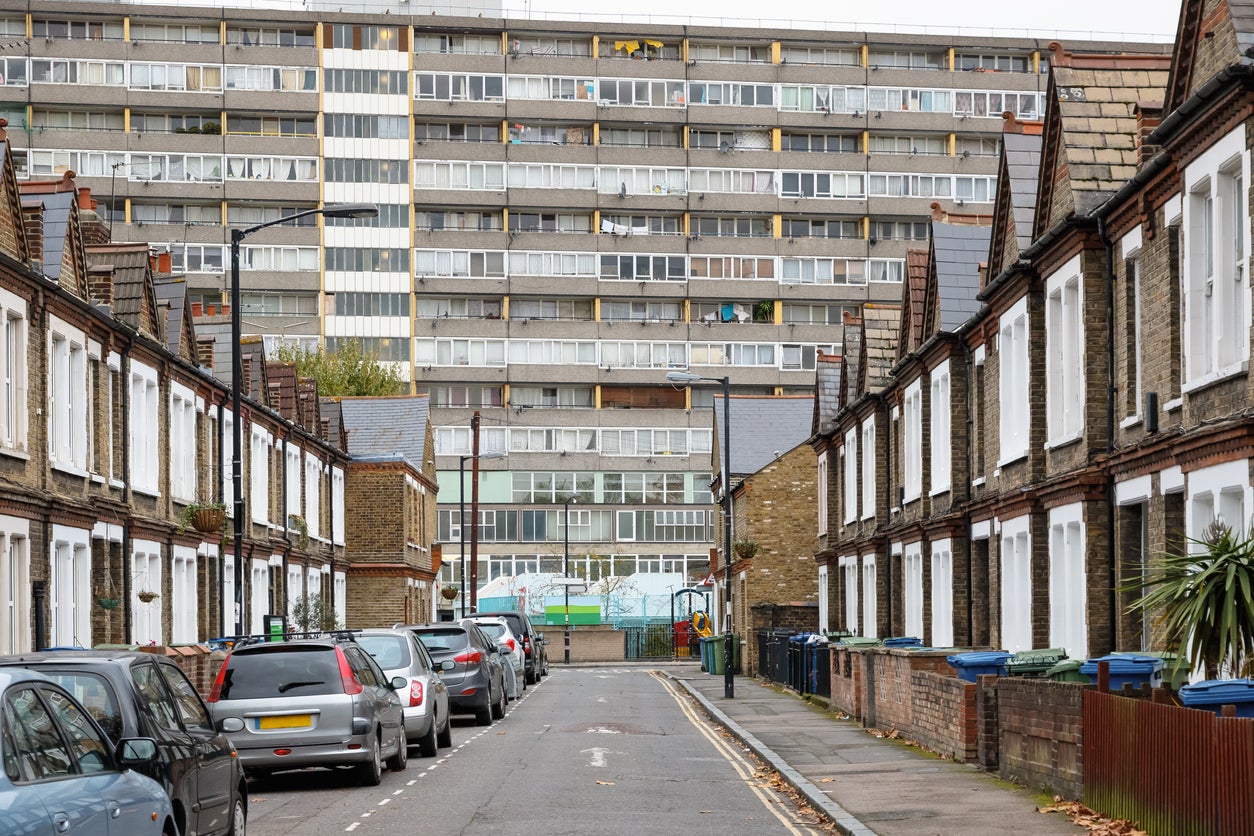Criminal landlords ‘being let off hook by councils failing to prosecute’
Two thirds of local authorities have failed to prosecute a single landlord in past three years, figures show

Thousands of criminal landlords are getting off the hook as local councils fail to prosecute them for the sub-standard state of their properties, according to new research.
More than two thirds of local authorities across England have failed to prosecute a single rogue landlord over the past three years, according to figures obtained by the National Residential Landlords Association through Freedom of Information laws.
In the three years between 2018/2019 and 2020/21, 67 per cent had not successfully prosecuted a landlord for offences related to standards in or the management of private rented housing. A further 10 per cent had secured just one successful prosecution.
Overall, just 20 local authorities were responsible for 77 per cent of all successful prosecutions. The three local authorities with the highest number of prosecutions (Southwark, Birmingham and Hull) were responsible for 38 per cent of all such action across England. Of these, Birmingham and Hull had no local landlord licencing scheme in place.
Among those councils responding, just 937 successful prosecutions of criminal landlords had taken place over the past three years. This is despite government estimates in 2015 that there may be around 10,500 rogue landlords in operation.
Ben Beadle, chief executive of the NRLA, said: “The vast majority of responsible landlords are sick and tired of a failure to root out the minority who bring the sector into disrepute. The problem is not a lack of powers, but a failure by councils to enforce them properly.
“Whilst ensuring councils have the resources they need is vital, so too is the need for them to be more transparent about the levels of enforcement they are taking. In short, local authorities need to prioritise activity to find and root out criminal landlords, ensuring it is they who meet the costs of such efforts.
“Our research illustrates also that there is no clear link between the existence of a landlord licensing scheme and levels of prosecutions. Councils again need to be open with tenants and landlords about how such schemes are ensuring standards are met in rental housing.”
The new data follows research published earlier this year by the NRLA which showed that over the same three years, 53 per cent of English councils had issued no civil penalties against private landlords.
Whilst the government has pledged to publish a white paper on reform of the private rented sector next year, the NRLA is warning that a failure to enforce the wide range of powers already available to tackle criminal and rogue landlords will critically undermine further reform.
The NRLA is calling on the government to provide councils with the multi-year funding needed to ensure they are properly resourced to take action against criminal landlords. According to research by Unchecked UK the amount spent on housing standards by local authorities in England fell by 45 per cent between 2009 and 2019.
This must, the NRLA argues, happen alongside a requirement for councils to publish details of formal and informal enforcement activity against private landlords on an annual basis. This is vital to ensuring that they can be held to account for efforts to tackle criminal and rogue landlords.
Earlier this year, research showed that more than four in 10 private renters in England experienced illegal behaviour from their landlord or letting agent.
According to a survey by the housing charity Shelter, Some 45 per cent of private renters have experienced illegal acts such as entering a home without notice or permission, assault and harassment.
Extrapolating this using the English Housing Survey, this is the equivalent of 3.7 million people subject to illegal acts, Shelter said.
More than a fifth said essential safety or household appliances like smoke alarms, central heating or water supplies were not working when they moved in.
Some 18 per cent said their deposit had not been secured in an approved government protection scheme, while 9 per cent said they had been assaulted, threatened or harassed.
A further 9 per cent said they had been untreated fairly due to their race, age, nationality, gender, sexual orientation or disability.
And 8 per cent said they had been removed from their home without the proper notice period or without the correct procedures being followed.
Shelter is calling for reform to renting laws to help improve the safety of tenants’ homes.
Polly Neate, the charity’s chief executive, said in September: “Home is everything. Yet millions of private renters across the country don’t feel safe or secure in theirs because of landlords and agents who flout the law.
“People should not have to put up with broken safety alarms, strangers bursting into their homes unannounced or the threat of harassment and violence.”
She added: “Enough is enough. Nobody is above the law and renters are tired of being powerless to enforce their rights.
“The government has promised voters a fairer private renting system that punishes illegal behaviour by landlords and letting agents.
“To deliver on this promise, its Renters’ Reform Bill must include a National Landlord Register that makes landlords fully accountable and helps drive up standards across private renting.”






Join our commenting forum
Join thought-provoking conversations, follow other Independent readers and see their replies
Comments